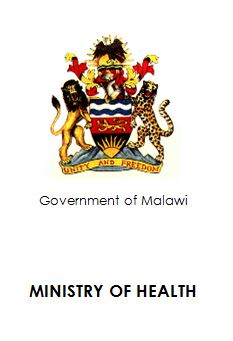The Decentralization programme has been going on in Malawi for 20 years now. Indeed a lot has happened considering that the first phase in the late 1990s was for laying the ground works relating to addressing capacity gaps and this was followed by the second phase that put in place the necessary components, frameworks and systems for decentralization and ushered actual devolution of functions putting decentralization on the wheels to where we are now. The year 2005 saw the devolution of various health functions to district councils which raised the status and responsibilities of councils and their respective District Commissioners. Indeed decentralization started on a good note and with good momentum. This was mainly because the right structures, support and resources for moving the decentralization agenda were in place. A fully fledged Decentralization Secretariat provided the necessary drive. All areas of decentralization received due support such as IEC, Training/Capacity building, Planning and M&E, Administrative reforms, Fiscal reforms and coordination of the relevant ministries, departments and agencies.
In response to the National Decentralization Policy (1998) and the Local Government Act (1998), good progress has so far been made by the Ministry of Health and Population in the decentralization of health services delivery to district, health centre and community levels in an effort to improve management, coverage and quality of services. In 2005 the MOHP published “Guidelines for the Management of Devolved Health Service Delivery by District Councils” in order to take hands off and simply keep eyes on the devolved functions. Subsequently, the guidelines gave District Councils the managerial autonomy over district health services delivery to improve outcomes. Immediately, District Councils assumed control of the devolved health functions. So far, the Ministry has devolved secondary and primary level health functions, human resources, ORT budgets, planning and budgeting function and monitoring and evaluation function to the districts.
In 2015, as part of the Government-wide Public Sector Reform programme launched that same year by the State President, the Ministry of Health, with the assistance of the Malawi Health Sector Programme Technical Assistance (MHSP-TA) initiated the process of fully decentralizing the district health system so that the ministry should focus its attention on the policy formulation and policy implementation functions, standard setting and enforcement functions, and training, amongst other key functions. The process began with a series of consultations and the development of a draft concept note on full decentralization of the district health system which was finalized in February 2018 with a detailed system structure and implementation plan. The next step in this process is to develop District Health System Operational Guidelines to guide District Councils on the management of the decentralized district health system that would ensure improved management, coverage, efficiency and quality of health services in line with the HSSP and Sustainable Development Goals.
To guide the development of these operational guidelines, an assessment to measure progress made by District Councils in addressing the health system related problems and gaps has been conducted. It revealed that major challenges to realize the full decentralization of the district health system persist. These include (1) the absence of the ‘necessary drive’, support and coordination from the central level ministries, departments and service commissions; (2) incomplete devolution; (3) misalignment of sectors and grades within the councils which is negatively impacting on decision-making processes and speed of development; (4) the unfilled post of Director of Health and Social Services; (5) the unpreparedness of urban councils to take over urban facilities and the entire urban health portfolio immediately; (6) the absence of a clear system for tracking and reviewing issues of decentralization; and (7) inadequate sensitization/capacity building on devolution within the councils.


